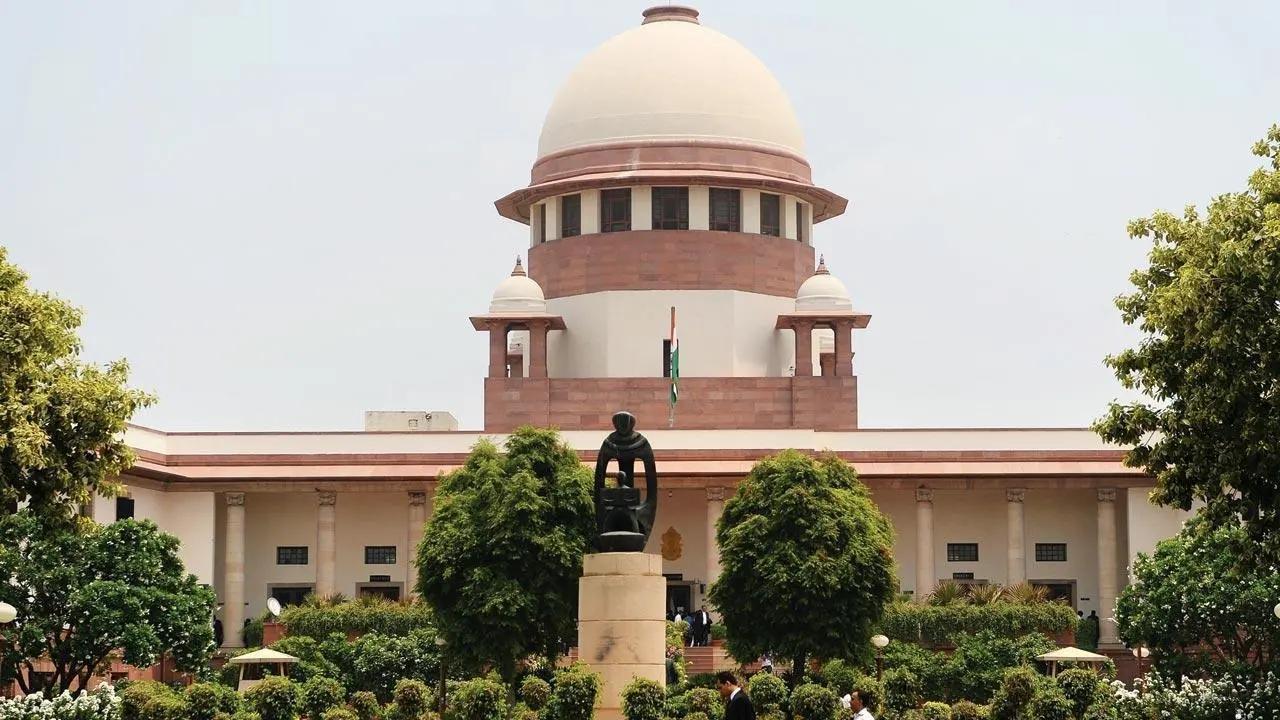


The Supreme Court has ordered the release of Prabir Purkayastha, founder and Editor-in-Chief of NewsClick, who was arrested and detained under the UAPA on charges of Chinese funding to promote anti-national propaganda. The court declared his arrest and subsequent remand to be invalid, granting him relief in his appeal. This comes after recent developments where the Delhi High Court also ordered the release of another NewsClick employee and approver in the case, Amit Chakravarty, citing medical reasons and the lack of prosecution objection. The Delhi Police has alleged that the news portal received money from China to disrupt India's sovereignty and influence various events, but the court has deemed the allegations as insufficient to justify the arrests.
UAPA: A Deeper Dive into the Controversial Law and Recent Developments
The Unlawful Activities (Prevention) Act (UAPA), enacted in 1967, is a stringent law designed to prevent and combat terrorist activities. It empowers law enforcement agencies to apprehend and detain individuals suspected of involvement in terrorism-related offenses. However, the law has come under scrutiny for its potential misuse and the broad scope of its definitions.
Recent Developments: Prabir Purkayastha's Release
Recently, the Supreme Court ordered the release of Prabir Purkayastha, founder and Editor-in-Chief of NewsClick, who was arrested under UAPA on charges of receiving Chinese funding to promote anti-national propaganda. The court ruled that his arrest and subsequent detention were invalid, citing insufficient evidence. This decision came after the Delhi High Court also ordered the release of Amit Chakravarty, another NewsClick employee, on medical and procedural grounds.
Allegations Against NewsClick
The Delhi Police had alleged that NewsClick received money from China to disrupt India's sovereignty and influence various events. However, the courts have found the evidence presented to be insufficient to justify the arrests.
Past Controversies and Misuse
The UAPA has been criticized for its potential misuse in the past. In 2018, five human rights activists were arrested under the law on charges of conspiring to overthrow the government. The arrests sparked widespread protests and allegations of political witch-hunt.
Top 5 FAQs
1. What does UAPA stand for? Unlawful Activities (Prevention) Act
2. What is the purpose of UAPA? To prevent and combat terrorist activities
3. Why is UAPA controversial? It has been criticized for its potential misuse and broad definitions
4. What were the charges against Prabir Purkayastha? Receiving Chinese funding to promote anti-national propaganda
5. Why was Purkayastha released by the Supreme Court? The court found the evidence presented insufficient to justify his arrest and detention
Conclusion
The UAPA remains a complex and controversial law. While it is necessary to have a framework to address terrorism, it is crucial to ensure that the law is not misused or abused for political purposes. Recent developments, such as the release of Prabir Purkayastha, highlight the need for careful scrutiny and a balance between national security and individual rights.

Elon Musk's xAI has launched Grokipedia, an AI-powered online encyclopedia to rival Wikipedia. Musk aims for the platform to be a "massive improvement" and free from any political bias. While Grokipedia currently sources content from Wikipedia, Musk plans to have all original content by the end of the year. This development adds to Bihar's political landscape, where leaders like Lalu Prasad and Nitish Kumar have dominated with their OBC politics, while Nitish's developmental narrative has transformed the state's political landscape.

BJP leader Chandrashekhar Bawankule sparked controversy with his statement that party workers' phones and WhatsApp groups are being monitored ahead of local body elections. Shiv Sena leader Sanjay Raut demanded his arrest, alleging that the phones of several Opposition leaders were also tapped. Bawankule clarified his statement, but the Sena leader questioned the involvement of BJP offices and technology networks, calling it a potentially anti-national act.

The Election Commission (EC) has announced the schedule for Special Summary Revision (SIR) of electoral rolls in 12 states and Union Territories (UTs) for the year 2025, excluding Assam due to the ongoing National Register of Citizens (NRC) process. While the BJP has welcomed the announcement, the Congress has raised concerns and questioned the decision. The Chief Election Commissioner (CEC) has stated that Assam has a separate provision in citizenship laws and the NRC process must be taken into consideration, causing potential delays in the SIR preparations. Despite the physical closure of banks in Ranchi and Patna, financial services will remain available through digital and self-service platforms, so customers are advised to use online banking and plan any in-branch visits accordingly.

In a step towards promoting ethical governance and preventing corruption, Chief Secretary Atal Dulloo administered the Integrity Pledge to officers and officials at the Civil Secretariat in Srinagar. This marked the beginning of the National Vigilance Awareness Week, a nationwide campaign held annually by the Central Vigilance Commission. The theme for this year is "Vigilance: Our Shared Responsibility", emphasizing the role of collective efforts in upholding integrity, transparency, and accountability in public administration. Throughout the week, various activities will be conducted to sensitize employees and citizens on the importance of honesty and integrity in governance.

In a bid to promote integrity and fight against corruption, the Central Vigilance Commission has declared the observation of 'Vigilance Awareness Week' with the theme 'Our Shared Responsibility'. Health Minister JP Nadda, during the launch, stressed the need for institutionalizing ethical practices and building a culture of vigilance in every level of governance. He also urged for creating a checklist of do's and don'ts in simple terms to prevent unintentional wrongdoings.

Delhi Environment Minister Manjinder Singh Sirsa chaired a meeting to discuss ways to control dust pollution from construction activities in the city. He revealed that an extensive campaign has been launched to monitor and penalize illegal and unregistered construction projects. The Minister also directed officials to expedite field actions and simplify the registration process to ensure timely intervention against polluters.

In a press conference held in New Delhi, the Election Commission has announced phase two of special intensive revision of electoral rolls in 12 states. This comes after political parties raised concerns about the quality of the rolls. While Tamil Nadu Chief Minister MK Stalin arrived at DMK headquarters to discuss the issue, Assam's electoral roll revision will be announced separately due to the ongoing process of the National Register of Citizens. The EC has assured that there will be no obstacles in implementing the roll clean-up exercise in West Bengal.

President Droupadi Murmu addressed probationers of the Indian Police Service 77 RR (2024 batch) and emphasized the significant role that effective policing and future-ready technology play in promoting growth and attracting investment in any state. She highlighted the transformational impact of technology in the realm of policing and urged young officers to remain ahead in adopting new technologies, including AI, to combat threats to citizens. The President also encouraged ethical decision-making and accountability among young officers occupying positions of power and authority.

CEC Gyanesh Kumar has announced the second phase of the Special Intensive Revision (SIR) of electoral rolls in 12 states and Union Territories, covering 51 crore voters. He also addressed concerns over the state of West Bengal, clarifying that there is no confrontation between the Election Commission and the state government. Additionally, he reminded that Aadhaar card is not proof of citizenship, but can be used as identity proof in the SIR process.

After Chief Justice Gavai's formal recommendation, Union Government is set to appoint Justice Surya Kant as the next Chief Justice of India. With a distinguished legal career and key institutional roles, Justice Kant is highly regarded for his commitment to electoral transparency and landmark verdicts on various issues including abrogation of Article 370 and free speech. His term is expected to begin on November 24, 2025, and last for approximately 15 months.